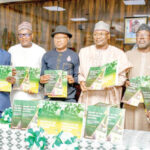Nigerians were considered dissatisfied with APC’s performance, but their victory at the polls tells a different story. The votes in large droves for the presidential candidate suggest that the voters are comfortable with the results of the last eight years and have decided to increase their mandate for another four years. Many would argue that the opposition parties lacked the practical strategy to take advantage of this dissatisfaction to get a clear victory against them.
The ruling party’s inability to deliver on its promises of economic growth and development has contributed to the success of election polarisation against them. With significant economic challenges, Nigerians are comfortable with this government’s ability to address these challenges. The opposition parties were able to offer a clear alternative vision for economic growth and development. Still, it seems the voters were not looking for a change – they wanted continuity – or so.
The first thing we learnt from this election is that individual vote-buying played a less significant role in determining the eventual winner of the elections. The cash crunch and lack of digital infrastructure in rural areas helped minimise this illegality.
The country’s economic situation is dire, but voters could express their choices at the ballot boxes with minimal cash inducement being reported. If this process succeeds, future elections will depend on political ideologies and long-term relationships with the electorate.
- NIGERIA DAILY: Real Reasons INEC Cannot Halt Result Collation
- Oba of Benin reenacts 700-year-old tradition
Second, as an institution, we have learnt that INEC is incompetent and inefficient. The INEC chairman has embarrassed the country on the international stage as he was reminded to follow the law of the institution he is leading. He lacks charismatic composure, and the inability to articulate the process clearly to the national agents which has caused dismay within the political parties. His incompetency may plunge the country into a constitutional crisis if the opposition parties successfully get a court that will stop them from announcing the result. It was embarrassing to see an academic – a professor – reminded about a rule book he helped design.
INEC has dented Buhari’s shaky legacy, and Nigerians are disappointed, as the BVAS failed to work as expected. INEC stipulated voting to close by 2:30pm contributed to low voter turnout. Many voters have complained of disenfranchisement with evidence posted via video on social media. The BVAS process took about two minutes to accredit voters, which lengthen waiting times. The machine was largely responsive during elections, but many faults were reported.
BVAS was meant to transfer results via the internet once elections were over, but the first 48 hours saw less than 50% of the results being uploaded. The IREV website is also not robust enough to accommodate viewers.
The whole story behind using technology to ensure transparency by INEC with BVAS and IREV has become laughable. The body was appropriated N305 billion for the elections. They could not upload scanned copies of result sheets with a custom machine for three days. As reported, the online portable is inefficient, making the whole process a joke.
On the world stage, global news agencies have been leaving the country before the final announcement, portraying the elections as a sham. The European Union election observation mission to Nigeria reported that the elections were held on schedule, but lack of transparency and operational failures reduced trust in the process and challenged the right to vote.
President Obasanjo has since published a letter and delivered an international press conference about the doubt on transparency and lack of professionalism of the INEC chairman. He may not be the model for credible elections but in times like this, speaking against bad practices is plausible. After all, the claim by the party agents who walked out of the collation hall is justifiable.
Third. We also learnt that the voting for the presidential election was done along party affiliations, religious, regional, and tribal lines. Of course, religious supremacists are unashamed of this polarisation. And the outcome cleared the doubt about those who think that numbers do not count. This strategy should not be adopted today after it failed in 1979 and 1993. On the contrary, seeing it succeed, politicians will adopt this strategy and make it a fixture to take advantage of the electorate.
Tinubu took advantage of these factors to ensure a massive win came his way. Selecting a northern Muslim was a master stroke that ensured massive support for him in the Muslim-dominated region. His decision sparked a religious competition in the country, pitting one backing a winner and another backing a loser. The consequences of the decision are yet to be seen, but one religion will be seen as the dominant one over the other because it might have helped in winning the presidency.
No one should think we have seen the end of this drama, but one thing for sure is that we have come to the end of the longest campaign in Nigeria’s history.
History will remember this election for several reasons, including how APC made the country vote for them despite the widespread dissatisfaction with its performance. As the country evolves politically, it will be interesting to see how these factors continue to shape its political landscape.

 Join Daily Trust WhatsApp Community For Quick Access To News and Happenings Around You.
Join Daily Trust WhatsApp Community For Quick Access To News and Happenings Around You.


